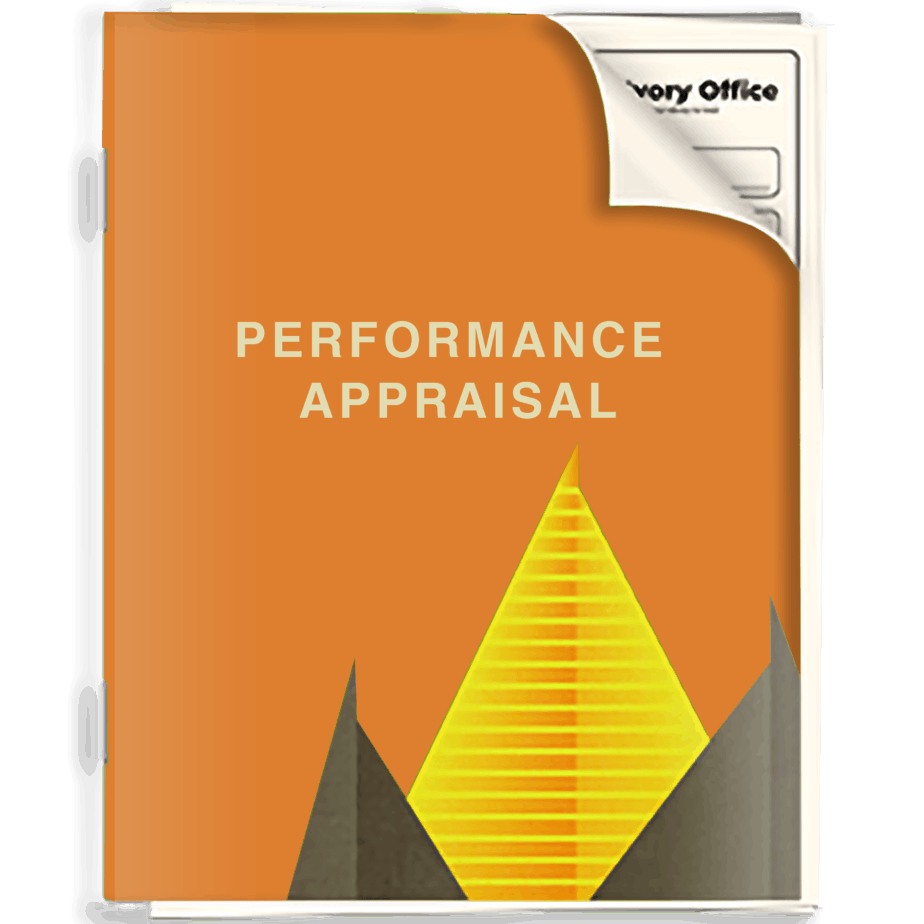Forms for
Managers & HR Specialists


Forms for recruiting Managers
Many of our forms are developed especially for the HR professionals involved in recruiting for management roles.
These forms will help you achieve a significantly higher success rate when recruiting managers.
Forms for business improvement High performance in business is all about human resources
There are 9 key factors that greatly influence the company’s success. Each of these 9 factors is connected with a key area of HR management.
The Ivory Office team developed a set of forms and guides that help business owners and managers improve 9 key areas of the business with a great impact on the company’s success.
A High-Value Recruiting System Key factor #1
Our team started by trying to identify the most important causes of failure in the process of recruiting a top executive and arrived at the following conclusions:
- The evaluator has the wrong perception of the importance of the various evaluation criteria due to misconceptions passed on from one generation of managers to the next
- Important assessment criteria are left aside during evaluation
- The method of evaluation used to assess certain skills/attributes is not well-chosen
The Ivory Office forms help the user achieve at least 2 key targets:
- The forms work very well as checklists and the evaluator can make sure that no important areas of the evaluation are missed
- For each skill/attribute/quality to be assessed in the evaluation the best method of evaluation (test/interview/references) is chosen
Learn more about
The forms for recruiting
A High-Value Performance Evaluation System Key factor #2
Measuring employee’s performance is instrumental in the running of a firm. The margin for error isn’t acceptable anywhere else, why should it be here?
The quality of an evaluation depends on many things, but the most important 3 factors are:
-
How good is the person evaluating the employee performance
-
How well is the evaluation done
-
How good is the evaluation criteria used
You will find suggestions of criteria/questions to use in the evaluation within each section dedicated to each management role. When choosing which of the suggested criteria/questions to include in the evaluation consider the following:
-
The performance evaluations are not only for you to assess your staff but a great way to tell your people what is expected of them.
-
The more the areas you want to see an improvement, the wider set of criteria you will need to use.

A High-Value Training System Key factor #3
Once you have a high-value performance evaluation system in place, you have what is needed to set a high-value people development system. The needs and the priorities for professional development for each employee are quite obvious and all is left is finding the best training course provider for each area.
A High level of Employees Satisfaction Key factor #4
Employee satisfaction must be of paramount importance to employers because of the impact it has on company performance.
Employers must know their employees are happy and contented, as well as fulfilling their professional ambitions at work.
Many different factors contribute to employee satisfaction; treating employees with respect, offering above industry-average benefits and compensation, providing, regular employee recognition.
Employee satisfaction is examined in many areas including quality of the management, understanding of mission and vision, level of employee empowerment, teamwork, communication, or co-worker interaction.
The way employee satisfaction is measured varies from company to company.
The Ivory Office Questionnaire for measuring employee satisfaction consists of more than 40 questions covering each area and concern to provide a holistic overview of how happy your staff is.
Learn more about
The Questionnaire for Employee Satisfaction
A High-performance Organizational Culture Key factor #5
The culture within a company affects everything inside an organization.
Business growth, profitability; both are strongly influenced by the company culture and this is why it has to be the number one concern for every good CEO.
Company culture determines how people act or contribute to problem-solving, innovation, productivity, or the quality of products and services.
It is a company’s culture that makes it safe for a person inside the business to raise issues and identify and solve problems or to act on new opportunities.
The company’s culture is most often at the root of the difficulties a firm may face, be it a low level of morale, a lack of motivation, a high absenteeism rate, poor internal communications, poor teamwork, or a low employee retention rate.
Most market leaders are companies with great cultures. There are studies reporting changes of 200% in the company performance as a result of implementing positive change in the company culture. To achieve results like this for your organization, first of all, you have to figure out what your culture is. Then, you must decide what it should be, and move everyone toward the desired culture.
Company cultures change over time. Every newly hired employee makes a small difference. Every change in the environment in which the company operates (the laws, regulations, business climate, etc.) has an impact too.
Some of the changes are positive, some not. Some changes are major, some minor. Either way, the company culture will change and it is important to be aware of the changes.
Assessing The Company Culture
There are many ways to assess your company culture. There are consultants who will do it for you, for a fee. But you can also do it yourself.
The Ivory Office Questionnaire for Company Culture provides a set of questions covering the most important facets to gauge how your business operates and how the culture is perceived amongst staff.
Learn more about
The Questionnaire for Company Culture
A High-value work infrastructure Key factor #6
Company Infrastructure means you are providing the right tools, equipment, and information to your employees to make sure they can do their job, and do it well.
The quality of the work infrastructure strongly influences how well a company performs.
The Ivory Office Questionnaire for Company Infrastructure is a set of questions that help you easily assess whether your staff has the equipment they need to get the job done and to deliver what it is expected from them.
Creating a culture of high-performance
What does high-performance culture mean and what impact will it have on company results?
This is the first and most important step any manager must take when they embark on establishing a framework to impact on company performance.
In our research, we have also found it is also the biggest obstacle to success as many managers do not understand what it means and the role it has within a company.
Our forms break down what you need to achieve in order to begin building a culture of high performance within your company.
We have made it easy to understand and have provided a series of goals and achievements to help you begin and continue along the path to high performance.
Learn more about
The Questionnaire for Work Infrastructure

High-value Goals, Objectives & Targets Key factor #7
It is a big deal of how objectives and targets are set. And our forms will help you be better at it.
A high level of focus on objectives and targets Key factor #8
Without value being placed on the direction of the firm, you run the risk of failing to meet objectives and targets and ultimately the business may not succeed.
You want your employees to be committed and focused to help you achieve the goals you set for your company.
A high level of commitment to achieving the set objectives and targets Key factor #9
Performance is closely linked to the value placed on setting and investing in company direction and strategy.
The Ivory Office Forms are helping you to understand how well the company direction is understood and valued amongst your employees.







